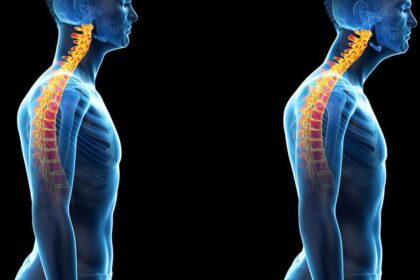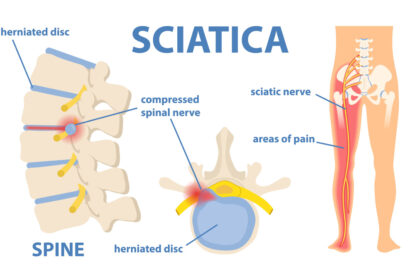When it comes to the intricate world of nutrition, one nutrient often stands in the shadows despite its immense importance: Vitamin D. This vital nutrient plays a key role in maintaining our overall health and well-being, extending its influence far beyond the commonly known benefits of bone health. Vitamin D is crucial for our immune system, metabolic processes, and even our heart health. Let’s dive into the multifaceted roles of Vitamin D, exploring why it’s not just beneficial but essential for our bodies, and uncover its profound impact on our health. Then, we’ll talk about the most important co-factor nutrient that ensures vitamin D3 works in your body and keeps your arteries young, flexible and healthy.
Unveiling Vitamin D: The Unsung Hero
Vitamin D is a pivotal nutrient that supports various bodily functions. Often overshadowed by more widely discussed vitamins and minerals, its significance extends beyond basic bone maintenance into the very fabric of our immune system, metabolic pathways, and cellular health. By delving into the numerous roles of Vitamin D, we can appreciate its essential place in our diet and understand why it’s a cornerstone of a healthy lifestyle.
Bone Health and Beyond
Vitamin D is primarily celebrated for its role in maintaining bone health. It aids in the regulation of calcium and phosphorus levels in the blood, which are crucial for bone formation and density. This process is vital in preventing conditions like osteoporosis. The interaction between Vitamin D and parathyroid hormone is a precise biochemical dance that ensures our skeletal system remains strong and resilient. However, Vitamin D’s benefits extend far beyond our bones.
Dental Health
Research has shown that Vitamin D is also important for dental health. Adequate levels of Vitamin D are linked to healthier gums and teeth, particularly in older adults. A deficiency in this nutrient can increase the risk of periodontal disease, emphasizing the need to maintain sufficient levels for oral health. This connection illustrates that Vitamin D’s benefits are not confined to our bones but are integral to our overall well-being.
Immune System Support
Vitamin D plays a critical role in our body’s defense mechanisms. It has the remarkable ability to modulate the immune system, enhancing our ability to fend off invaders while preventing overactive immune responses that can lead to inflammation and autoimmune diseases. Conditions such as Crohn’s disease, lupus, and multiple sclerosis have been linked to Vitamin D deficiency, highlighting its role in maintaining and preventing chronic health issues. This immune-regulating capability underscores the importance of Vitamin D in our nutritional arsenal.
The Metabolic Impact of Vitamin D
Vitamin D’s influence extends into the realm of metabolic functions, particularly in managing and preventing Type 2 diabetes. This connection stems from Vitamin D’s impact on calcium levels, which are essential for regulating insulin and glucose in the body. Healthy levels of Vitamin D ensure optimal calcium availability, which is crucial for insulin secretion and glucose tolerance. Therefore, maintaining sufficient levels of this vitamin is vital not just for bone health but also for preventing metabolic disorders.
Pancreatic Support
The pancreas, responsible for producing insulin to manage blood glucose levels, benefits significantly from Vitamin D. Adequate levels of this vitamin support pancreatic production of insulin, thereby helping regulate blood glucose levels more efficiently. This aspect of Vitamin D’s function highlights its importance in a holistic approach to metabolic health.
Cancer Prevention
Exploring the relationship between Vitamin D and cancer prevention reveals another fascinating chapter in the story of this nutrient’s extensive benefits. Research indicates that individuals with adequate sun exposure, which naturally increases Vitamin D production, show lower incidences of certain types of cancer. Scientists have discovered that Vitamin D helps control cell growth and death—processes that, when dysregulated, can lead to cancer. Vitamin D’s ability to inhibit cancer cell proliferation and promote natural cell death positions it as a potential ally in cancer prevention.
Heart Health and Vitamin D
Vitamin D’s protective effect against heart disease is particularly noteworthy. Heart disease, a leading cause of mortality worldwide, has been linked to deficiencies in Vitamin D. Research shows that low levels of Vitamin D are associated with an increased risk of heart attacks, peripheral artery disease, congestive heart failure, and atherosclerosis. These findings underscore the critical role of Vitamin D in cardiovascular health.
Anti-inflammatory Properties
The anti-inflammatory properties of Vitamin D are central to its heart-protective effects. Inflammation contributes to the development and progression of heart disease, leading to high blood pressure and blood vessel damage. By mitigating inflammatory responses, Vitamin D helps prevent arterial damage, thereby safeguarding the heart. This action highlights the importance of Vitamin D in maintaining structural health and preventing inflammatory conditions that can have severe consequences for heart health.
Prevalence of Deficiency
Vitamin D deficiency is widespread, particularly in regions with limited sunlight exposure. Factors such as the use of statins, which lower the body’s cholesterol level necessary for Vitamin D synthesis, and the natural decline in Vitamin D production with age, compound this issue. Addressing this deficiency requires awareness and proactive management of Vitamin D levels through diet, supplementation, and lifestyle adjustments.
Addressing Vitamin D Deficiency
The widespread issue of Vitamin D deficiency poses a significant health concern, affecting many people globally. This deficiency is particularly prevalent in regions far from the equator, where sunlight exposure is limited. The implications of such a deficiency are far-reaching, impacting bone health, immune function, and increasing the risk of chronic diseases.
Modern Lifestyle Challenges
Our modern lifestyle further exacerbates the challenge of maintaining adequate Vitamin D levels. Increased time spent indoors and the prevalent use of sunscreen reduce the opportunity for our skin to produce Vitamin D from sunlight. Additionally, the rise in statin use contributes to the deficiency by lowering the cholesterol precursor needed for Vitamin D synthesis.
Dietary and Supplementary Solutions
Addressing Vitamin D deficiency requires a multifaceted approach. Dietary sources of Vitamin D, such as fatty fish, egg yolks, and fortified foods, provide an alternative intake route, though it can be challenging to achieve sufficient levels through diet alone. Supplementation offers a viable solution, with Vitamin D3 supplements being the most effective for raising and maintaining adequate blood levels. Sensible sun exposure—approximately 10-15 minutes of midday sun several times a week—can significantly boost Vitamin D levels, taking care to avoid sunburn and excessive UV exposure.
Understanding the root causes of Vitamin D deficiency and implementing practical solutions are critical steps toward safeguarding our health. By recognizing the importance of this nutrient and taking proactive measures to ensure adequate levels, we can mitigate the risks associated with deficiency and embrace a healthier, more vibrant life.
The Synergistic Power of Vitamin D and K2
While Vitamin D has garnered much attention for its broad spectrum of health benefits, it’s crucial to acknowledge its synergistic relationship with other nutrients, particularly Vitamin K2. The combination of Vitamin D3 and Vitamin K2 forms a powerful duo in supporting overall health, especially in terms of bone health and cardiovascular protection. This synergy highlights the complexity of nutritional science and the importance of a balanced approach to supplementation.
If you take high levels of vitamin D3 without k2 this can lead to hardened arteries, which is not good. Hardened arteries are not flexible and do not pass blood through as well.
Calcium Regulation
Vitamin K2 plays a pivotal role in the regulation of calcium deposition in the body. While Vitamin D ensures calcium is absorbed, Vitamin K2 directs that calcium to the bones where it’s needed, rather than allowing it to deposit in the arteries, which can lead to hardening and cardiovascular disease. This teamwork prevents the calcification of blood vessels and enhances bone mineralization, showcasing how these two vitamins work together to bolster heart health and prevent osteoporosis.
Blood Clotting and Bone Health
Vitamin K2 supports blood clotting, bone health, and the regulation of calcium levels in the blood, adding another layer of protection against heart disease. The inclusion of Vitamin K2 with Vitamin D3 in supplementation strategies ensures that the benefits of Vitamin D are maximized without the potential risk of arterial calcification, providing a comprehensive approach to maintaining health.
To harness the full potential of Vitamin D without unintended consequences, it’s advisable to consider supplements that combine Vitamin D3 with Vitamin K2. This not only ensures the effective utilization of calcium in the body but also maximizes the cardiovascular and bone health benefits of Vitamin D supplementation. As always, it’s important to consult with a healthcare provider before starting any new supplement regimen to tailor the approach to individual health needs and conditions.
The intricate dance between Vitamin D and K2 is a prime example of how nutrients work in harmony to support our health. By embracing the complexity of these relationships, we can make informed decisions about our nutritional intake, leading to a healthier, more balanced life.
Practical Tips for Maximizing Vitamin D and K2 Benefits
Integrating the synergy between Vitamin D and K2 into our daily routines can significantly enhance our health outcomes. Here are some practical tips to help you make the most of these powerful nutrients:
- Choose Combined Supplements: Opt for supplements that combine Vitamin K2 with D3. This duo is crucial for enhancing calcium absorption and supporting immune health, ensuring you’re getting the full spectrum of benefits.
- Follow a Protocol Guide: Incorporate a protocol guide into your routine. A comprehensive guide to living your best life can offer invaluable insights into how to synergize nutrition, supplements, and lifestyle changes for holistic health.
- Mindful Sun Exposure: Aim for safe sun exposure to naturally boost your Vitamin D levels, which is essential for the body’s absorption of calcium and overall health.
- Incorporate K2-Rich Foods: Enhance your diet with foods high in Vitamin K2, such as natto, cheese, and egg yolks, to complement your D3 intake.
- Exercise Regularly: Engage in weight-bearing and strength-training exercises. Regular physical activity supports bone health and enhances the effectiveness of vitamins D3 and K2.
- Monitor Your Levels: Regularly check your Vitamin D levels to ensure they are within an optimal range, adjusting your supplementation as needed.
- Balanced Diet: Focus on a diet rich in magnesium and calcium—vital partners of Vitamin D and K2 for bone strength and heart health.
- Stay Hydrated: Proper hydration is key for optimal nutrient absorption, including vitamins D3 and K2
Recommended Supplementation:
- Surthrival Vitamin D3+k2: This is a blend of both in one simple formula that also has a nice minty flavor. Click Here to visit their website to get it today!
Be sure to use the discount code: HealthyWildFree for 10% off. - Activation Products D3+k2: This is another Vitamin D3 + K2 supplement. It’s quite literally the same size as the Suthrival supplement and very similar, just a few dollars cheaper. Click here to visit their website and be sure to use the discount code: healthywildfree to get 15% off your order.





